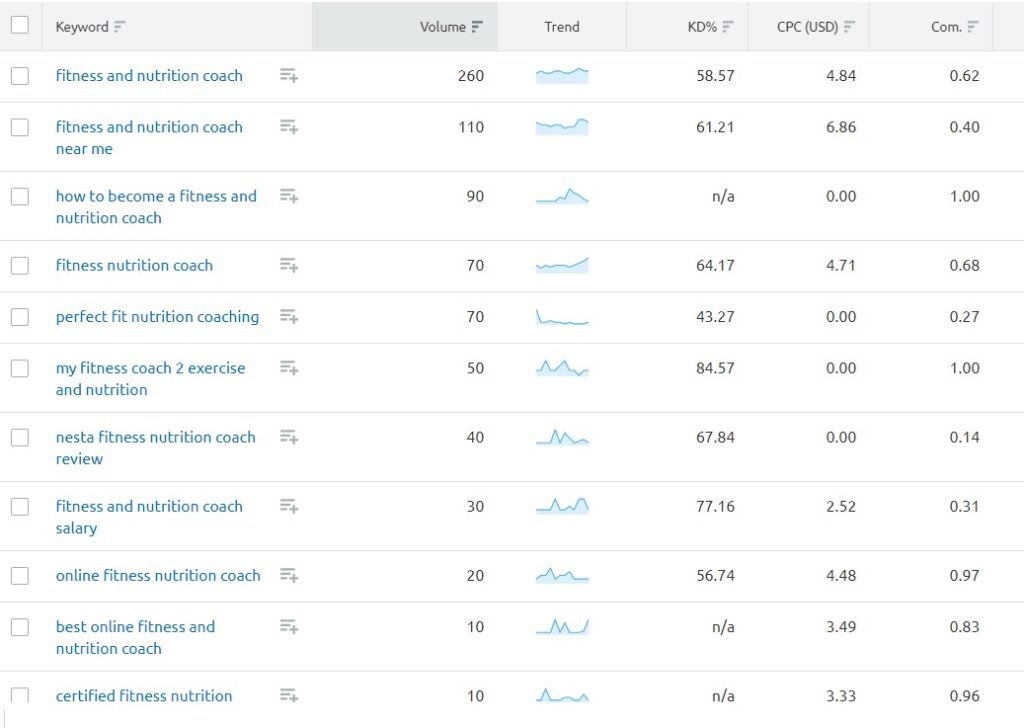Maximize Your Website Content: Successful SEO Tips For Health and Wellness Pros

When you ask most people why they wanted to start their own health and wellness business, you’ll find answers like – escaping from the grinding 9 to 5, freedom to be with your family at the moments that matter, or a yearning to help people change their lives and mold their little corner of the world.
The answer you rarely hear is a burning desire to learn online marketing and SEO tactics.
When talking about SEO, most people’s eyes glaze over and their minds freeze, fearing the complicated mumbo-jumbo that it takes for content to rank on search engines. It seems difficult, and so frankly, most people don’t want to learn it.
If this sounds like you, then keep reading. This article will share some simple techniques that show you that SEO doesn’t have to be as complicated as it seems, and can actually revolutionize your health and wellness business by getting your site ranking in search engines.
Tell a story with your website that Google likes too
Search engine optimization is a long term game. There is no one-time solution that leaves your site fully optimized and ranking in position 1 for the years to come.
SEO is all about relevance, quality and authority.
It’s about having consistent, relevant content on your site that
shows Google and other search engines that you are the right source for people searching for solutions in your industry.
When you have effective SEO in place, you will be able to:
- Help your website rank better in search engines for relevant search terms
- Raise awareness of your brand by getting found through organic searches by real people
- Drive ‘free’ highly qualified organic traffic to your site
- And gain new clients or boost your sales!
The key to outranking the competitors and showing up in search results is to answer specific questions your audience is asking throughout your website copy.
Grow your wellness business using keywords
When it comes to search engines, “keywords” are simply just the phrases and questions that people type into the search bar.
Having a deeper understanding of the keywords and phrases your audience searches for can help you create engaging and optimized website copy.
Getting started with keyword research is easy, and you likely already know more than you think. For example, if you are a fitness coach you probably get a whole load of questions from clients.
What sort of food should I be eating?
Do I have to exercise to lose weight?
What’s the best way to keep the weight off for good?
Do I need a personal fitness coach?
These frequently asked questions are the perfect fodder for optimizing your website and writing compelling blog topics. If they are asking you these questions, then they are going to Google looking for answers too.
You can also use different tools like UberSuggest or SEMRush to find different phrases and variations of your keywords. If you are a fitness coach, you can type in this keyword and find different variations that your clients may be using as well, like “personal trainer fitness coach” or “certified fitness nutrition coach.”
These tools offer a multitude of useful information, like search volume, CPC and the difficulty of the keyword you are interested in ranking for.
It’s also good to have a mix of broad and longtail keywords in your web copy and blogs.
Broad keywords are phrases like “health coach”. They have a very large volume but are also very difficult to rank for. Longtail keywords, on the other hand, are very targeted phrases, like “holistic health and wellness coach for women”. These have less volume, but are also less difficult to rank for and more conversion-focused.
Someone looking for the first keyword may just be in the initial research phase, whereas someone looking for the second keyword may be much more likely to invest.
Even looking on Google in the suggested search box or in the “related searches” section at the bottom of the page can give you valuable insight into what people are actually typing in online!
Pulling it all together
Once you have a good list of broad and longtail keywords, it’s time to start sprinkling them into your copy.

Don’t keyword stuff, but use different variations of your keywords in a natural flow– remember, Google cares about quality and intent.
For some of the more targeted keywords and questions, a blog may be the perfect solution. A blog gives you the flexibility to dig deep into different topics and also gives you an outlet to constantly publish new content to your site, situating you as an authority in your niche.
But having great content is only one part of SEO. You also need the site to host it.
A good website is a crucial part of SEO.
A fast loading website that is mobile friendly and structured well is essential for ranking well online.
If you’re interested in chatting about SEO or website copywriting, schedule a time to chat!


